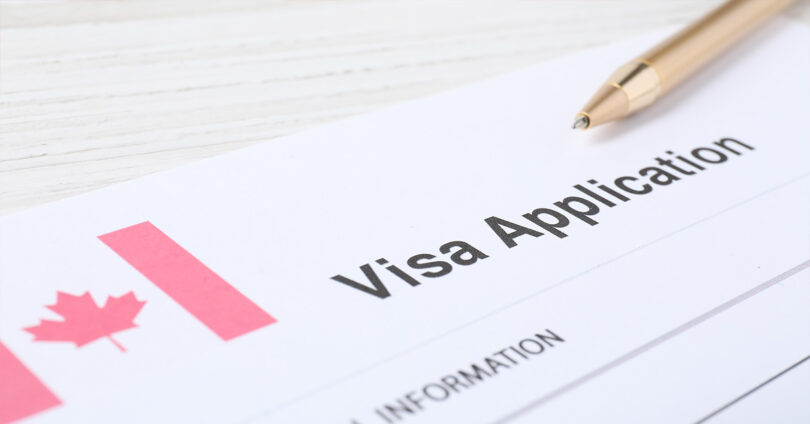Dreaming of building a new life in a country like the USA, Canada, Australia, or the UK? You don’t need a fancy degree or years of specialised experience to make it happen!
Believe it or not, a significant pathway exists through unskilled jobs with visa sponsorship. These roles are the backbone of thriving economies and offer a genuine chance for hardworking foreigners to secure legal work visas and start fresh.
This guide reveals the opportunities, the process, and how you can land your ticket abroad.
Why Unskilled Jobs Offer Visa Sponsorship (The Simple Truth)
- Persistent Shortages: Roles in agriculture, hospitality, cleaning, and certain manufacturing are consistently hard to fill locally.
- Seasonal Peaks: Industries like farming and tourism boom at specific times, demanding extra manpower quickly.
- Essential Services: Societies need people to clean, serve food, care for the elderly, and build infrastructure.
- Proven Reliability: Many employers find sponsored workers highly motivated and dependable.
Top Unskilled Jobs Offering Visa Sponsorship for Foreigners
- Agricultural Worker (Harvesting, Planting, Farm Labor):
- The Work: Picking fruits/vegetables, planting crops, tending livestock, operating basic farm machinery, packing produce.
- Why Sponsorship Happens: Massive seasonal demand (especially in the US H-2A visa program, Canada’s Seasonal Agricultural Worker Program, UK Seasonal Worker Visa). Farms simply can’t find enough local help during peak seasons.
- Key Perks: Often includes housing (crucial!), outdoor work, and a clear seasonal structure.
- Housekeeper / Hotel Cleaner:
- The Work: Cleaning guest rooms, making beds, replenishing supplies, maintaining public areas in hotels, resorts, or large cleaning companies.
- Why Sponsorship Happens: High turnover, constant demand in tourist hotspots and major cities year-round. Resorts and large hotel chains often utilize sponsorship programs (like the US H-2B visa for non-agricultural seasonal work).
- Key Perks: Potential for tips (in some roles), working in pleasant environments, often stable year-round positions in cities.
- Warehouse Associate / Order Picker:
- The Work: Loading/unloading trucks, moving stock with carts or forklifts (training often provided), picking/packing orders, scanning inventory.
- Why Sponsorship Happens: Explosive growth of e-commerce means massive warehouses need round-the-clock staffing. Companies facing local labor shortages may sponsor (common in the UK via Skilled Worker visa for certain roles meeting salary thresholds, or specific regional programs).
- Key Perks: Often shift work offering flexibility, potential for overtime, structured environment.
- Construction Laborer / Helper:
- The Work: Site preparation (clearing debris), assisting skilled tradespeople (carpenters, electricians), moving materials, basic demolition, cleanup.
- Why Sponsorship Happens: Construction booms create huge demand. While skilled trades are the priority, reliable laborers are essential and sometimes sponsored, particularly for large infrastructure projects (Canada’s Temporary Foreign Worker Program – Low-Wage Stream is one potential route).
- Key Perks: Potential pathway to learn a trade, active outdoor work, seeing tangible results.
- Dishwasher / Kitchen Porter:
- The Work: Washing dishes, pots, and pans, keeping the kitchen clean, assisting with basic food prep (peeling vegetables), taking out trash.
- Why Sponsorship Happens: Restaurants, hotels, and catering companies run 24/7. Dishwashing is physically demanding with high turnover, making sponsorship a solution for busy establishments (H-2B visa in the US is common for seasonal resorts).
- Key Perks: Often includes meals, fast-paced environment, entry point into the hospitality industry.
- Food Processing Plant Worker:
- The Work: Operating production line machinery (e.g., packaging, sorting), basic quality checks, preparing raw ingredients, maintaining hygiene standards.
- Why Sponsorship Happens: Factories processing meat, poultry, seafood, or packaged goods need consistent labor. Remote plant locations often struggle to attract local workers (Canadian TFWP, UK Seasonal Worker for food processing).
- Key Perks: Structured shift work, often indoors, potential for overtime.
- Commercial Cleaner / Janitor:
- The Work: Cleaning offices, schools, hospitals, or public buildings after hours (vacuuming, mopping, restocking bathrooms, emptying trash).
- Why Sponsorship Happens: Essential service with constant demand, especially overnight shifts. Large cleaning contractors serving corporate clients sometimes sponsor reliable teams (Potential under UK Skilled Worker if meeting criteria, or specific regional programs elsewhere).
- Key Perks: Often quieter nighttime work, independent working style, stable demand.
How to Find Unskilled Jobs with Visa Sponsorship: Your Action Plan
- Target the Right Countries & Programs: Research is key! Focus on nations with established temporary foreign worker programs:
- USA: H-2A (Agriculture), H-2B (Non-Agricultural Seasonal) visas. Check the Department of Labor website.
- Canada: Temporary Foreign Worker Program (TFWP) – Agricultural Stream, Low-Wage Stream. Explore provincial nominee programs (PNPs) sometimes targeting specific sectors. Visit Immigration, Refugees and Citizenship Canada (IRCC).
- UK: Seasonal Worker Visa (horticulture, poultry), Skilled Worker Visa (some warehouse/supervisory roles might qualify if meeting salary/skill level). Check GOV.UK.
- Australia: Temporary Skill Shortage (TSS) visa (less common for truly unskilled, but possible in regional areas for agriculture/hospitality), Working Holiday Visa (temporary, limits per employer). See Home Affairs website.
- Use Specialized Job Boards (Crucial!): Generic sites rarely list sponsored unskilled roles. Target:
- Official Government Portals: Often list approved employers (e.g., US Department of Labor’s FLAG system for H-2 jobs).
- Dedicated Visa Sponsorship Sites: Try Indeed (filter by “Visa Sponsorship”), MyVisaJobs (US-focused), VisaSponsorJobs, WorkingAbroad.
- Recruitment Agencies Specializing in Foreign Labor: Search for agencies licensed to recruit for specific sectors (e.g., agriculture, hospitality) in your target country. Examples: SARC (Seasonal Agricultural Recruitment Company – UK), Select Force Group (US Agriculture), Express Employment Professionals (various sectors).
- Contact Employers Directly (Be Strategic):
- Focus on industries listed above: large farms, hotel/resort chains, major warehouse operators (like Amazon, logistics companies), big restaurant groups, industrial cleaning contractors, food processing plants.
- Check their official career websites for “international opportunities” or “visa support” sections.
- Be clear and professional in inquiries: State your interest in unskilled roles and need for sponsorship upfront.
- Network Authentically: Connect with people from your home country already working abroad in these sectors on LinkedIn or social groups. They might know of openings or reputable employers/agencies.
The Visa Sponsorship Process: What to Expect
- Job Offer: This is the absolute first step. An employer must offer you a specific position.
- Labor Certification (Often Required): The employer usually must prove they couldn’t find a qualified local worker (e.g., advertising the job locally). Government agencies handle this (e.g., DOL in the US, ESDC in Canada).
- Employer Files Visa Petition: The employer submits paperwork to the immigration authorities, proving the job offer and meeting program requirements.
- You Apply for the Visa: Once the petition is approved, YOU apply for the actual visa at the embassy/consulate in your home country. This involves forms, fees, medical exams, and an interview.
- Visa Decision: Authorities decide based on your application, the job offer validity, and background checks.
Facing Reality: Challenges and How to Overcome Them
- Competition: Many seek these opportunities. Solution: Apply early, tailor applications, highlight reliability, physical stamina, and eagerness to work hard. Get references.
- Costs: Visa fees, medical exams, flights, agency fees (if used) can add up. Solution: Research costs thoroughly. Be wary of exorbitant “agent” fees – use reputable agencies. Save diligently.
- Temporary Nature: Many visas (H-2A, H-2B, Seasonal Worker) are temporary or seasonal. Solution: Perform exceptionally well. Build trust. Employers may rehire or sponsor for longer-term roles later. Some programs (like certain Canadian streams) offer pathways to permanent residence after gaining experience.
- Potential for Exploitation: Sadly, some bad actors exist. Solution: Research employers/agencies extensively. Understand your rights under the visa program and local labor laws. Never pay an employer for sponsorship. Use official government resources.
- Language Barrier: Basic local language skills (English, French, etc.) are usually essential for safety and daily life. Solution: Start learning now! Even basic proficiency helps immensely.
Your Journey Starts Now
Unskilled jobs with visa sponsorship are a legitimate, vital pathway for thousands of foreigners to build a better future. While demanding, these roles offer the incredible chance to live and work legally in a new country, gain valuable international experience, and send money home. Success requires persistence, thorough research, and a relentless work ethic.







Leave a Comment